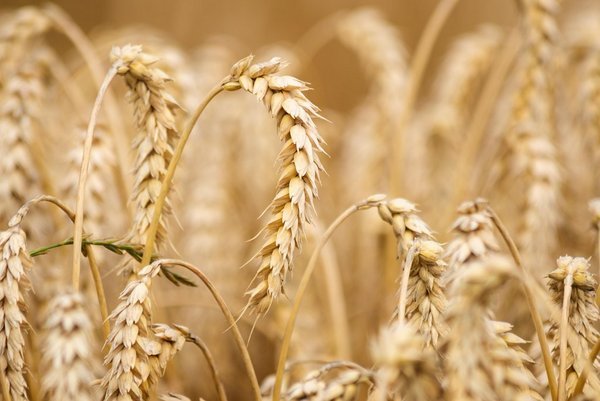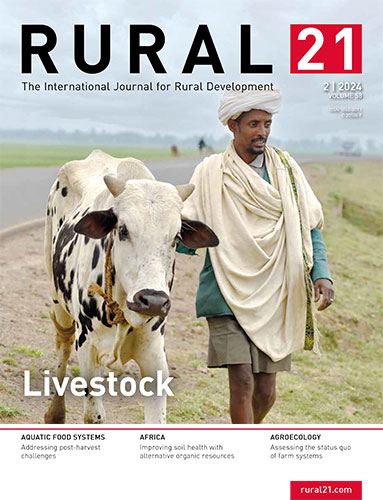 Read this article in French
Read this article in French- Share this article
- Subscribe to our newsletter
Research on future nitrogen needs for growing wheat
In a study by an international research team, that was published in the Nature Plants magazine in July 2024, the scientists advocate the development of strategies to improve nitrogen uptake in wheat crops. In wheat, only 48 per cent of the fertiliser applied is taken up by the crop. The rest of the applied nitrogen, a large proportion, leaches into the soil or is emitted into the air. This excess nitrogen fertilisation pollutes water, leads to high greenhouse gas emissions and is a major driver of biodiversity loss.
In this study, the researchers applied simulation models for the highest-yielding wheat varieties to model potential yield increases and associated nitrogen requirements. Different climate change scenarios were applied to the world's major wheat growing regions. The study was co-authored by Professor Frank Ewert and Professor Heidi Webber of the Leibniz Centre for Agricultural Landscape Research (ZALF) in Müncheberg, Germany
Nitrogen uptake in wheat needs to be improved
"Our results show that we need to focus primarily on ensuring that nitrogen is available to plants in the soil and can be efficiently absorbed by the plants. This has a major impact on the yield potential of wheat, but also on the environment. In view of the negative effects of excess nitrogen on the climate and the environment, we cannot increase fertiliser application any further, but must think about alternatives," says Ewert, who is Scientific Director at ZALF and co-author of the study.
Among the solutions discussed by the authors is the breeding of wheat varieties that better absorb and utilise nitrogen. Other farming practices are also needed, such as combining wheat with legumes that can produce nitrogen from the air with the help of nodule bacteria. However, none of these solutions alone will enable the necessary intensification of wheat production. What is needed is a sensible integration of agronomic, genetic and socio-economic factors.
Wheat is the world's most important crop. As the world's population grows and economic growth increases, so too will the demand for wheat. At the same time, the world's arable land is limited. In addition, agriculture must reduce its negative impact on the climate and the environment if it is to continue to feed the world. Climate change adds to these challenges. Sustainable solutions require consideration of the entire agri-food system.
(ZALF/wi)
Reference:
Pierre Maitre, Frank Ewert et al.: “Global needs for nitrogen fertilizer to improve wheat yield under climate change”; Nature Plants July, 2024.





Add a comment
Be the First to Comment